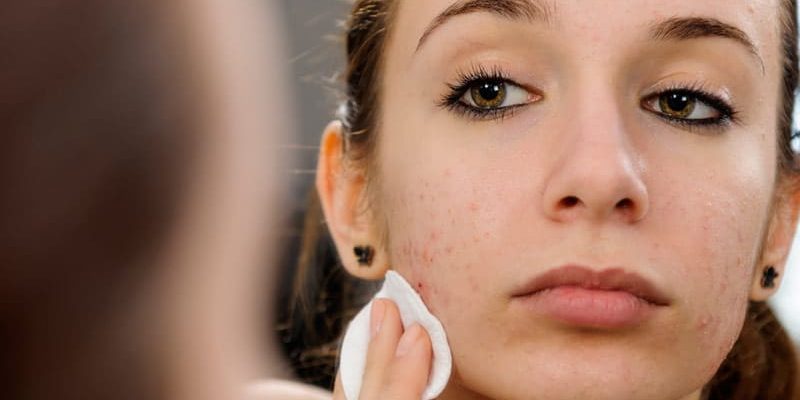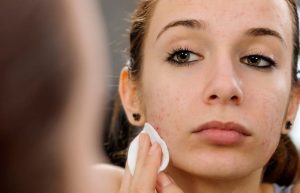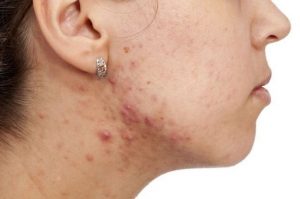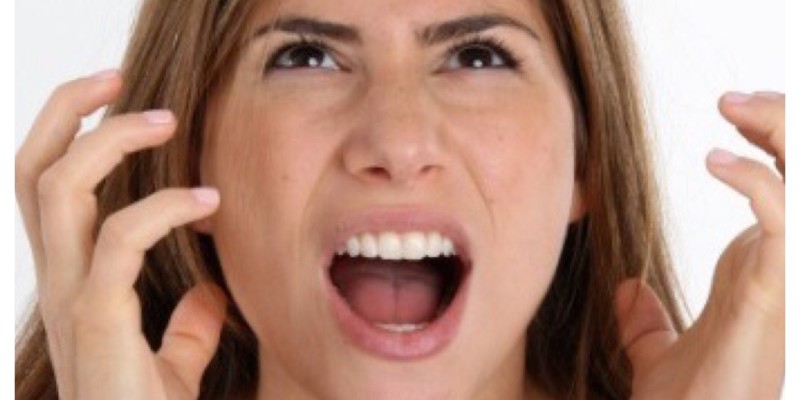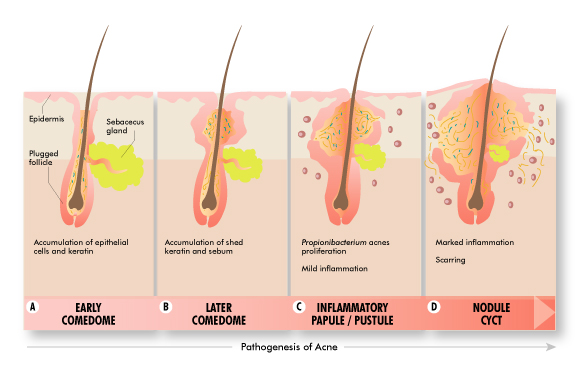10 skin care habits that can worsen acne
While it’s important to wash your face, washing too many times a day can irritate your skin, causing new breakouts.
Are you faithfully treating your acne but still seeing new breakouts? Your skin care routine could be to blame. Here you’ll find 10 skin care habits that can worsen acne and dermatologists’ tips to help you change those habits.
- Try a new acne treatment every week or so. This approach can irritate your skin, which can cause breakouts.
- What to do instead: Give an acne treatment time to work. You want to use a product for 6 to 8 weeks. It takes that long to see some improvement. If you don’t see any improvement by then, you can try another product. Complete clearing generally takes 3 to 4 months.
- Apply acne medication only to your blemishes. It makes sense to treat what you see, but this approach fails to prevent new breakouts.
- What to do instead: To prevent new blemishes, spread a thin layer of the acne medication evenly over your acne-prone skin. For example, if you tend to
breakout on your forehead, nose, and chin, you’d want to apply the acne treatment evenly on all of these areas of your face. - Use makeup, skin care products, and hair care products that can cause acne. Some makeup along with many skin and hair care products contain oil or other ingredients that can cause acne breakouts. If you continue to use them, you may continue to see blemishes.
- What to do instead: Use only makeup, sunscreen, skin and hair care products that are
labeled “non-comedogenic” or “won’t clog pores.” These products don’t cause breakouts in most people. Check out the Elan Medical DermaActive skin care range for acne - Share makeup, makeup brushes, or makeup applicators. Even if you use only non-comedogenic products, sharing makeup can lead to blemishes.
- Acne isn’t contagious, but when you share makeup, makeup brushes, or applicators, the acne-causing bacteria, oil, and dead skin cells on other people’s skin can wind up in your makeup. When you use that makeup, you can transfer their bacteria, oil, and dead skin cells to your skin. These can clog your pores, leading to breakouts.
- What to do instead: Make sure you’re the only person who uses your makeup, makeup brushes, and makeup applicators.
- Sleep in your makeup. Even non-comedogenic makeup can cause acne if you sleep in it.
- What to do instead: Remove your makeup before you go to bed. No exceptions. If you’re too tired to wash your face, use a makeup remover towelette. Just make sure it’s a non-comedogenic towelette.
- Wash your face throughout the day. Washing your face several times a day can further irritate your skin, leading to more breakouts.
- What to do instead: Wash your face twice a day — when you wake up and before you go to bed. You’ll also want to wash your face when you finish an activity that makes you sweat.
- Dry out your skin. Skin with acne is oily, so it can be tempting to apply astringent and acne treatments until your face feels dry. Don’t. Dry skin is irritated skin. Anytime you irritate your skin, you risk getting more acne.
- What to do instead: Use acne treatments as directed. If your skin feels dry, apply a moisturizer made for acne-prone skin. You’ll want to apply the moisturizer twice a day, after washing your face.
- You also want to avoid using astringents, rubbing alcohol, and anything else that can dry out your skin.
- Scrub your skin clean. To get rid of acne, you may be tempted to scrub your skin clean. Don’t. Scrubbing can irritate your skin, causing acne to flare.
- What to do instead: Be gentle when washing your face and other skin with acne. You want to use a mild, non-comedogenic cleanser. Apply the cleanser lightly with your fingertips, using a circular motion. Gently rinse it off with warm water, using only your fingers. Then pat your skin dry with a clean towel.
- Rub sweat from your skin during a workout. Using a towel to roughly rub away sweat can irritate your skin, which can cause breakouts.
- What to do instead: When working out, use a clean towel to gently pat sweat from your skin.
- Pop or squeeze breakouts. When you pop or squeeze acne, you’re likely to push some of what’s inside (e.g., pus, dead skin cells, or bacteria) deeper into your skin. When this happens, you increase inflammation. This can lead to more-noticeable acne and sometimes scarring and pain.
- What to do instead: Resist the temptation to pop or squeeze acne. You want to treat your acne with acne medication. If you have deep or painful acne, seeing a dermatologist is necessary to help clear your acne.
When to see a dermatologist
Many people can control their acne by following these skin care tips and using
At Elan Medical Skin Clinic in Rayleigh, Essex we are a registered medical clinic. Our Dermatology Nurse Consultant is able to prescribe prescription only medication for the treatment of ace.
With the right help, virtually everyone who has acne can see clearer skin.
